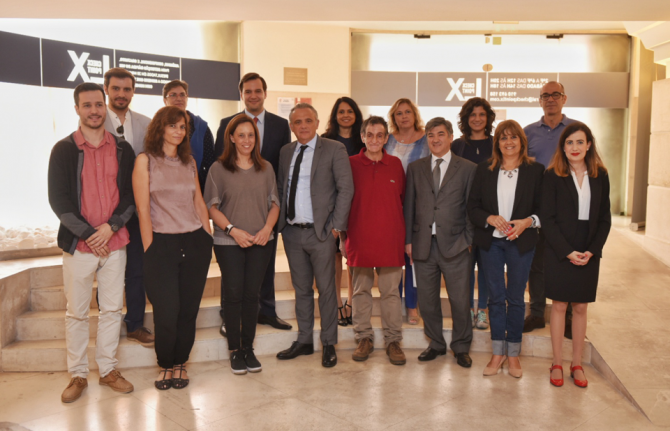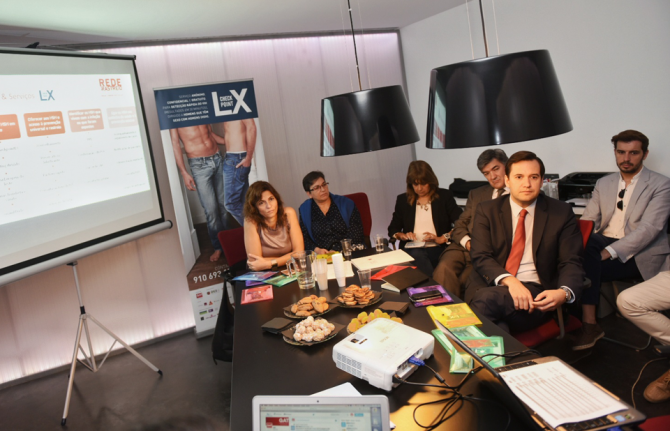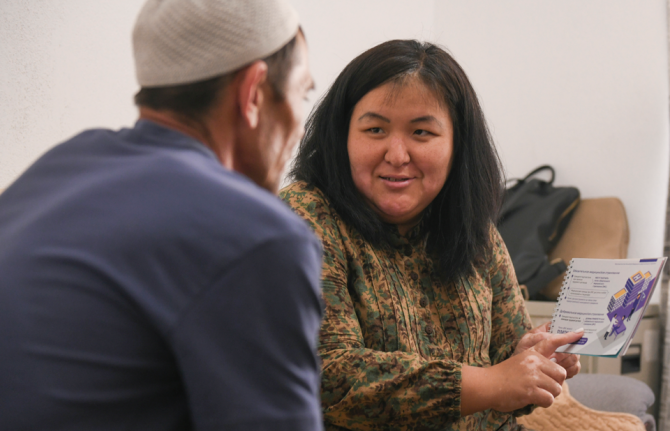




Update
Portugal: putting people at the centre of the AIDS response
30 May 2017
30 May 2017 30 May 2017Increased access to pre-exposure prophylaxis (PrEP) and HIV testing, together with the elimination of discrimination, are key to reducing new HIV infections in Portugal, representatives of civil society told UNAIDS Deputy Executive Director Luiz Loures in Lisbon, Portugal.
On 29 May, Mr Loures visited CheckpointLX, a community-based centre in Lisbon for men who have sex with men that offers rapid, confidential and free screening for HIV and other sexually transmitted infections, as well as counselling and referral to health care. During the visit, he discussed the challenges faced by civil society organizations in the response to HIV in the country.
The civil society representatives noted the progressive health policies that Portugal has regarding drug use, which are regarded as best practices in reducing new HIV infections among injecting drug users around the world. They also highlighted the importance of the current enabling legislation that is, for example, providing access to health services, including for HIV, to migrant populations regardless of their legal status, which puts Portugal at the forefront of the AIDS response in Europe.
The government’s political commitment to end AIDS by putting people at the centre of the response was further embodied by the Ministry of Health’s announcement on 29 May of the provision through the national health system of PrEP for key populations at higher risk of HIV infection, including gay men and other men who have sex with men and people who inject drugs, and for serodiscordant couples.
Nonetheless, challenges remain. Despite Portugal’s enabling legislation, the civil society representatives stressed the need to ease access to HIV prevention, diagnosis and treatment for migrant populations, given the raising HIV prevalence among migrants. The need to take a holistic approach in the provision of services, including screening for hepatitis, tuberculosis and sexually transmitted infections, was stressed. The representatives also noted that eliminating all forms of discrimination will be paramount to increasing access to services and to ending the AIDS epidemic as a public health threat by 2030.
UNAIDS is working with countries to achieve the commitment in the 2016 United Nations Political Declaration on Ending AIDS of ensuring access to combination prevention options, including pre-exposure prophylaxis, voluntary medical male circumcision, harm reduction and condoms, to at least 90% of people by 2020.
Quotes
“The HIV legislation in Portugal is a pathfinder for a broader protection of human rights. The provision of HIV services to migrants in the country is contributing to a more inclusive and safer society.”
“As a person living with HIV for the past 22 years, I strongly believe that we have all the elements needed to end AIDS in Portugal by 2030, and to achieve impressive results already by 2020.”



